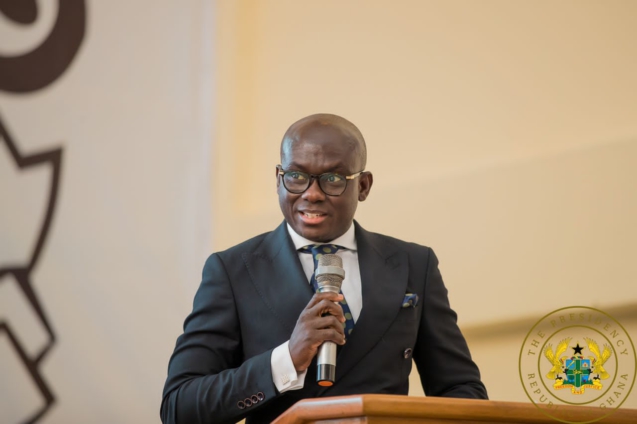Make Africa arbitration hub for foreign cases — Attorney-General
The Attorney-General and Minister of Justice, Godfred Yeboah Dame, has advocated the need to make Africa a home for arbitration in cases emanating from Africa.
Addressing a luncheon of the African Regional Forum as part of the International Bar Association annual conference in Mexico, last Thursday, Mr Dame observed that African nations faced significant challenges in international arbitration, particularly when foreign laws governed proceedings that directly affected them.
For instance, he cited a recent case where Nigeria faced an award of over $11 billion against it, stemming from a claim by Process & Industrial Development Limited (P&ID).
He added that although a London court ultimately set aside the award, the process underscored the challenges African nations faced in international arbitration.
“It is quite curious that in some instances, companies which fail to make out any claim in domestic courts of African countries succeed in extremely huge international arbitration actions, sometimes mounted on the back of contracts which have failed to receive the relevant statutory and constitutional approvals of the countries in which they operate,” he said.
He added that this phenomenon was not because of a weakness of the judicial systems of African countries but simply because of the nature of international arbitration due to the secrecy of proceedings, flexibility of rules and the finality or non-appealability of awards.
In line with his call for a sober reflection on the regime for handling international arbitration on the African continent and a reform of the same, Mr Dame urged African governments to boost the integrity of their legal systems by setting up fair and efficient mechanisms for commercial dispute adjudication and strengthening the systems for the conduct of arbitration in various African countries.
By establishing fair and efficient local arbitration mechanisms, African countries, he said, could ensure that external forces did not undermine their legal systems.
He, therefore, urged stakeholders to collaborate and create an environment characterised by transparency and fairness, thereby enhancing the business climate across the continent.
With determined efforts, he said Africa could transform its arbitration landscape into one that reflected its sovereignty and protected its interests.
Efforts
Mr Dame said the country was leading the way by establishing the Ghana Alternative Dispute Resolution Centre.
Touting the centre as a hub that presented a viable venue for the resolution of multi-billion dollar commercial disputes and cases, he called on the audience to consider Ghana’s new ADR Centre for the adjudication of important commercial disputes on the continent.
Ghana, he disclosed, was making further reforms in pursuit of arbitration against the state.
He added that the nation was currently undertaking processes to ensure the passage of a law, an amendment to the State (Property and Contracts) Act, 1960, to mandate all contracts involving the state and its agencies as parties to not only stipulate Ghana law as the governing law but also to have Ghana as the seat of arbitration, with the ADR Centre in Accra being the venue for the arbitration.
“With this amendment, the practice whereby the State and Ghanaian lawyers travel to various jurisdictions – Paris, New York, London, Singapore, among others, for the conduct of arbitration involving the Government of Ghana and where arbitral awards are enforced all over the world at enormous cost to the State, and in jurisdictions with legal systems alien to Ghana’s, will cease and will be consigned to history,” he said.
Cross-border work
Mr Dame added that due to the cross-border character of law practice, there was a need for synergy between enforcement of the rule of law in domestic jurisdictions and international law.
In line with this, he urged lawyers on the continent to constantly train themselves to position them to provide modern, relevant, innovative and cost-effective services.
“The central core to being a lawyer, apart from integrity and values, is the acquisition of legal knowledge. In no situation is this more necessary than the occurrence of a cross-border legal dispute,” he added.
Touting Africa as a continent with multiple legal regimes – the common law, civil law, jurisdictions with a combination of civil and common law, and Islamic law, among others, he said disputes involving states and states, states and corporations and states and individuals might be resolved within the framework of any of these systems of law or a combination of them by an established international tribunal or ad hoc tribunal.
As a result, he said it was necessary for the lawyer involved in any of these matters to be trained in procedures established by any of the systems of law.
He also called on lawyers to occasionally offer their services free to those who could not afford them as a way of tackling inequality by bridging shortfalls and narrowing gaps.



